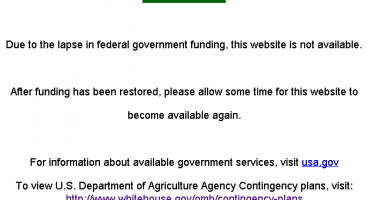Do Californians want to raise oil taxes?

 Are Californians ready for another tax increase?
Are Californians ready for another tax increase?
That’s what California hedge-fund manager Tom Steyer sought to find out in his “People’s Poll” on whether voters would support an added oil extraction tax in California. The tax would be 9.9 percent on a barrel of oil. It would raise up to $2 billion a year.
Steyer is not new to pushing tax increases. In 2012, voters approved his Proposition 39, which increased taxes $1 billion for corporations headquartered in other states.
Steyer’s political advocacy organization, NextGen Climate, retained the Benenson Strategy Group to conduct a poll on the prospects for voter approval of a statewide oil-pumping tax. The poll was conducted of 800 likely voters in California.
The major findings: 64 percent to 75 percent of likely voters supported a new oil extraction tax.
Loaded Questions
But the poll was based on questions such as:
Q17. Suppose you knew California is the only one of 22 oil producing states where oil companies extract oil for free. Given this, would you say you strongly support charging oil companies an extraction fee in California, somewhat support, somewhat oppose, or strongly oppose it? “
Results:
| Strongly support | 48% |
| Somewhat support | 27% |
| Somewhat oppose | 9% |
| Somewhat oppose | 10% |
| Don’t know | 6% |
| SUPPORT | 75% |
| OPPOSE | 19% |
The above is what is called a loaded question. Loaded questions contain a presumption that the attacked group is guilty.
Q17 presumes that oil companies are guilty of extracting oil in California for free, which is clearly not the case. It is the “truth” — as in a half truth — that California does not have an oil extraction tax. However, it has corporate, sales and individual income taxes on oil that generate about the same revenues as oil extraction taxes from other states.
In 2008, William Hamm, who once ran the non-partisan Legislative Analyst’s Office in California, and colleague Jose Alberro conducted a study, “Comparison of Oil Tax Burdens in the Ten Largest Oil Producing States.” This study documented that California’s oil taxes are about average. However, if oil-extraction surtaxes would be charged in California, the state’s combined oil taxes would be 40 percent higher than the combined oil taxes of any other state.
Age Bias
The Steyer poll respondents also were over-represented by those more than 65 years of age compared to the California population age profile of the U.S. Census:
|
Age-Range – |
Slant |
||
|
18 to 64 |
73% |
90.6% |
– 17.6% |
|
65 to 84 |
26% |
9.4% |
+16.6% |
|
Don’t Know |
1% |
—– |
Younger adult Californians were under-surveyed by 17.6 percentage points. And older Californians were over-sampled by 16.6 percentage points compared to U.S. Census age profile data.
This is an important slant because older respondents who drive less or not at all would be expected to be less concerned about increasing oil and gasoline prices.
Un-Representative Sample
Steyer’s poll also subtly over-surveyed Democrats, Independent and No Party Preference voters over Republicans.
Republicans only comprised 25 percent of the respondents to the poll, but 28.6 percent of the registered voters, according to the California Secretary of State.
Independent/No Party Preference voters made up 36 percent of those polled, but were only 21 percent of registered voters.
No opposition
Another problem with the poll is that it was conducted outside the normal political environment of an election. In an actual election, oil companies and such anti-tax groups as the Howard Jarvis Taxpayers Association would be expected to run adds pointing out that an oil tax increase inevitably would be be paid by drivers through higher prices at the pump — at a time when prices already have been going up.
Any oil tax increase would be put on the Nov. 2016 ballot. Which means it’s also hard to see what the political climate would be in a presidential election year. For example, although the Democratic nominee for president almost certainly would win in California, if a recession occurs, Democratic voter turnout might be dampened, hurting support for a tax increase.
Earlier this year, Gov. Jerry Brown, running for his own re-election this year, rejected the Steyer tax. He said in January, “I don’t think this is the year for new taxes. When I went up and down the state campaigning for Proposition 30, I said it was temporary and it is going to be temporary. I just think we need everything we can to live within our means before going back again to try and get more taxes.”
Voters approved Prop. 30 in 2012, which increased taxes $7 billion.
Related Articles
Quarter-million applicants still waiting for Medi-Cal
A quarter-million Medi-Cal applicants have been waiting more than 45 days, and in some cases nearly a year, either
Shutdown: Where is CA now?
Another day, another case of epic gridlock in the nation’s capital. Both sides have reached an impasse. It’s likely that
Previewing Gov. Brown's State Address
JAN. 31, 2011 By KATY GRIMES With Californians poised to hear Gov. Jerry Brown’s State of the State address this




